Renee Bellis, Feedback Labs | August 29th, 2024
The Feedback Labs team recently had the opportunity to interview Olivia Nyaidho, Development in Gardening (DIG)’s, Director of Global Mission and Executive Director of DIG in Kenya, as part of an effort to collect stories of high-quality feedback loops from members of our community. Olivia attended the Feedback Crash Course with DIG Global’s Executive Director in 2023. Following the course, DIG invested in Feedback Labs’ self-paced Introduction to Feedback Mini Course to train more staff in gathering feedback. The Mini Course helped Olivia gain buy-in from her colleagues for their feedback work, and gave the team a shared vocabulary and methodology for feedback.
About Development in Gardening (DIG)
DIG works in Kenya, Uganda, and Senegal with uniquely marginalized populations, such as those living with HIV, young mothers, people living with disabilities, and others to develop the skills and resources to farm their own food in regenerative ways, which enhances nutrition, food security and financial resilience, ultimately enabling greater agency and upward mobility.
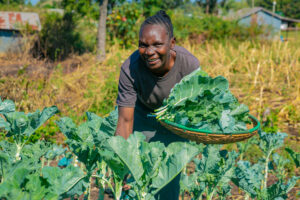
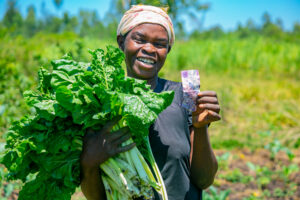
Designing a Closed Feedback Loop about Farm Implements
Olivia told us that the Crash Course training was very timely for her. DIG already had a robust monitoring and evaluation system. But following the Crash Course, Olivia realized that DIG needed additional feedback from its constituents, particularly those in its Farmer Field School, which supports marginalized participants by sharing the cost of the farm implements. The team was getting random and mixed feedback from the farmers they worked with and they wanted to figure out what type of implements, such as boots, to offer participating farmers. Olivia and her team initiated a feedback loop to answer this question.
Collection: A questionnaire was developed to get feedback from farmers about what farm implements they wanted. Due to the context of working in remote communities, the questionnaire was administered by paper.
Analysis: The data was put into an Excel sheet for analysis. The team was surprised when the data showed that farmers wanted to be offered the option of picking which type of boots they would get. The analysis affirmed that the farmers were happy with some of the farm tools that were already available from DIG and suggested some new tools that could be included in the farm input support program.
Reporting Results & Dialogue: DIG produced a full list of all the items farmers expected to be given, including both types of boots so that farmers could feel comfortable paying for whichever one they could afford. At one of their regular meetings with farmers, the team presented the full list of farm inputs that DIG would provide. The team heard that the farmers were happy to have been given the opportunity to provide feedback and felt that DIG had responded to what they wanted. 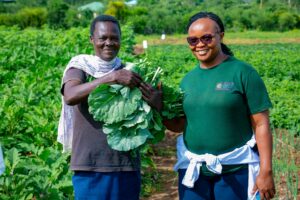
Course Correction: The expanded inputs list began serving farmers quickly because the team saw different farmers requesting the different boots. Olivia told us that this feedback loop helped DIG incorporate the voice of constituents into the organization’s work.
Feedback to Drive Greater Impact
Feedback Labs asked Olivia if she has noticed any impact of feedback on her work due to feedback. She mentioned that DIG has begun asking participants what they consider success for its programs. Programmatic outcomes and what is measured in the organization’s monitoring and evaluation processes are now being influenced by initial feedback from constituents.
In addition, Olivia has shared her experience with the DIG Uganda and DIG Senegal Program Directors, who are now also able to employ similar mechanisms to gain feedback from farmers on specific issues that are outside of DIG’s current M&E framework.
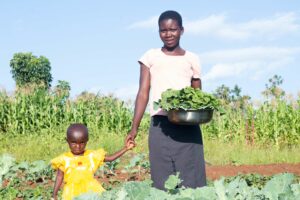
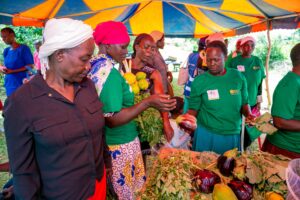
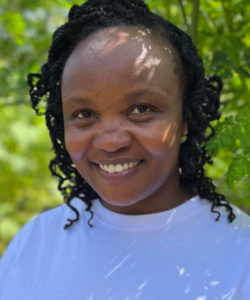
Olivia Nyaidho is the Director of Global Mission & DIG Kenya Executive Director. Olivia started with DIG in 2013 with a vision for adapting and expanding our programs in Western Kenya. Her expertise is in sustainable agriculture, environmental management, community based agribusiness, gender equity, and monitoring and evaluation. She is a governing board member of PELUM Kenya, a network of organizations promoting agro-ecological solutions for small holder farmers. Olivia has brought immeasurable benefits to both the organization and our farmers in the region. She has a Bachelor of science in agriculture and a Masters in project planning and management. She is married and the mother of 2 exceptional boys who are proud to see their mother leading other women towards improved health and empowerment through nutrition sensitive agriculture.







